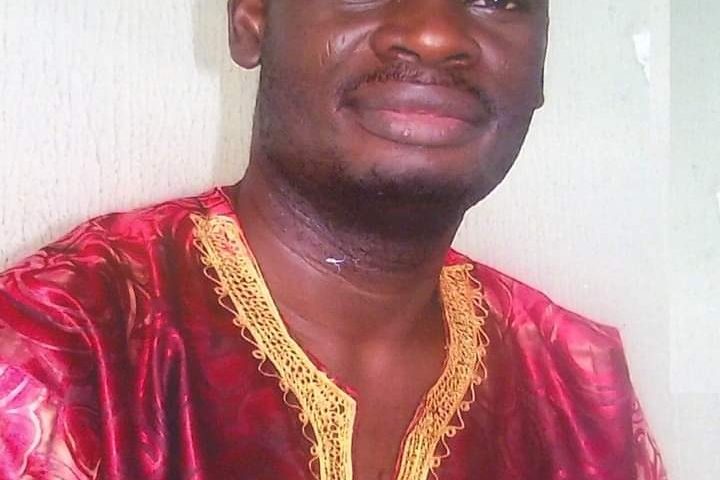From Elizabeth Vincent/ Yenagoa
Governor Douye Diri of Bayelsa State says the Ijaw Nation has made significant progress in human and infrastructural development after the demise of its hero, Major Isaac Adaka Boro, 55 years ago.
Governor Diri made the assertion during the 2023 Boro Day public lecture and dinner held at the Chief DSP Alamieyeseigha Banquet Hall at Government House in Yenagoa.
The Governor, who was represented by his deputy, Senator Lawrence Ewhrudjakpo, said it was after Isaac Boro that the Ijaw nation was able to produce a President of Nigeria and several top-ranking public officeholders, including service chiefs in the armed forces.
He insisted that if Isaac Adaka Boro resurrected today he would be fully persuaded that the Ijaw ethnic group had gained more ground and momentum since his death in 1968.
His words: “I agree substantially with our lecturer this evening, Professor Ambily Etekpe, on the issues discussed, but I differ on when more progress was made in the Ijaw struggle.
“I believe that after Boro more mileage has been made, because Boro had paid the supreme price, which is the fertilizer that grows the tree of success and freedom.
“We have made steady progress even though we are not where we are supposed to be. But definitely we are not where we used to be.
“If Boro rose today, he would be persuaded that we have gained more ground because it is after Boro that a son of the Ijaw nation, a son of Bayelsa became President of the Federal Republic of Nigeria. It is after Boro we have Ijaw sons emerging as Chief of Army Staff, and Chief of Naval Staff. So we have not done badly.”
Governor Diri who drew attention to Bayelsa’s infrastructural drive under his administration, said the state was not doing badly in comparative terms with states created alongside it in 1996.
He pointed out that Bayelsa currently has three functional state universities, an airport, and had expanded the road infrastructure it inherited from previous administrations.
The Governor, therefore, called on the elders, youths, women, intellectuals and other stakeholders to close rank with government to sustain what is already on the ground to achieve more for the state.
He said: “When you look at the indices of development, in comparative terms, Bayelsa is not doing badly. Today, we have three state-owned universities, and I don’t think any state created alongside Bayelsa can boast of three state universities.
“Our government has taken the frontiers of development by expanding on what Senator Seriake Dickson started, and that is why you can now conveniently drive from the Ecumenical Centre to the Amassoma Road.
“We have also awarded contract for the construction of the last phase of that road from the Amassoma to Onopa. Let’s sustain what we have, so that we can achieve more.”
Earlier in his solidarity speech, the immediate past Deputy Governor, Rear Admiral Gboribiogha John Jonah (Rtd) thanked the Bayelsa State Government for organizing the dinner and public lecture in the honour Isaac Boro to further enlighten the people on the Niger Delta struggle.
He extolled Boro for his elevated sense of patriotism by keeping faith with the cause he believed in, which was also instrumental to the enlistment of many Ijaw sons into the armed forces with some of them rising to the pinnacle of their military careers later on.
In his contribution, the Amayanabo of Twon-Brass, HRM King Alfred Diete-Spiff, commended government that for bringing the Boro Day celebration back home was the best thing to do to honour the celebrated Ijaw hero.
King Diete-Spiff used the opportunity to call on the returning and fresh National Assembly members-elect from Bayelsa State to make an informed agitation for creation of more LGAs in Bayelsa State to meet the minimum constitutional requirement of 10 LGAs for a state.
In his opening remarks, the chairman of the organizing committee for the Boro Day celebration in the state, Alabo Gideon Ekeuwei pointed out that this was the first time the State Government was organizing a lecture and dinner of such magnitude as part of activities to relive the heroic exploits of Isaac Adaka Boro.
Gideon Ekeuwei, who is the Secretary to the State Government, expressed gratitude to the state government and all critical stakeholders for their invaluable contributions to the success of the programme.
In his lecture entitled, “The Ijaw Struggle: Before And After Isaac Adaka Boro”, Professor Ambily Etekpe traced the struggle to the Arthur Richard’s Constitution of 1946, which laid groundwork for regionalism and subsequent balkanization of the Ijaw nation.
He said the Ijaw struggle was standing on four major planks, which include economic development, political development, culture and language, as well as environmental development.
While admitting that significant strides had been made by the Ijaw people, Professor Etekpe, noted that more was still needed to be done for the Ijaw ethnic nationality to attain its pride of place in the Nigerian state.
The lecturer, who is a political scientist, opined that the contemporary focus of the Ijaw struggle should be on creation of three additional states and at least 60 local government areas for the Ijaw nation.





